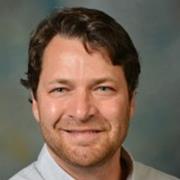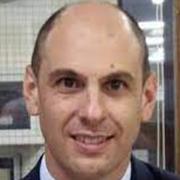Middle and High School Education
Spring: n/a
Summer: n/a
Part-time (Daytime)
Overview
The Master of Arts in Teaching (MAT) in Middle and High School Education is designed for candidates seeking Massachusetts Initial teacher license at the middle and high school levels in the following areas:
Grades 5-12: Engineering, English, History, Latin and Classical Humanities, Social Sciences
Grades 5-8 and 8-12: Mathematics
Grades 5-8: General Science
Grades 8-12: Biology, Chemistry, Earth Science, Physics
Grades PreK-8 and 5-12: Spanish and German
Program Outcomes
As a student in the program, you will work closely with faculty and peers at Tufts, as well as with a mentor teacher in a school setting as you prepare for teaching. You'll participate in a year-long field placement where you'll get the opportunity to develop relationships with students and faculty, learn about the inner workings of a school, try a variety of teaching strategies, and reflect critically on the teaching experience. Through your coursework, you will develop an understanding of the crucial theoretical frameworks in Education and learn how to effectively move between the theoretical and the practical. In addition to coursework requirements in the Department of Education, you'll also take two graduate level courses in the academic field you plan to teach in
Application Requirements
- Application fee
- Resume/CV
- Personal statement:Elaborating on your reasons for wishing to pursue graduate study at Tufts. Your personal statement should be a maximum of 2,500 words, single spaced. Describe experiences, including inspiring individuals or events that motivated you to take this path.
- Official TOEFL, IELTS, or Duolingo English Test, if applicable
- Transcripts: One official copy of each of your college transcripts
- Three letters of recommendation: two of the three letters of recommendation should be from academic professionals representing the subject area in which the applicant is seeking licensure.
- Supplemental essay: An additional essay is required for applicants to the MAT Middle/High School (non-Art) program who are applying for an Urban Teacher Training Collaborative (UTTC) track: In up to 500 words, please tell us why you are seeking an intensive teacher training experience in an urban setting. What experiences have prepared you for working in an urban school and how will doing so contribute to your professional goals?
- Attend the Interview Day: An annual Interview Day is held in January/February (by email invitation) and at that time, candidates will have the opportunity to meet with faculty and students, visit school sites/meet with school partners, and experience a sense of what the Tufts MAT program entails. For those who are unable to attend, individual interviews will be scheduled.
Tuition & Fees
GSAS bills tuition using a per-credit billing model, meaning you are billed for the number of credits you take each semester. This billing model is used to provide students better flexibility so they may "pay-as-they-go".
| Tuition* | $1,270 per credit |
| Total Credits Required | 30 |
| Enrollment Status | Part-Time: 3-6 credits (typically 1-2 courses) Full-Time: 9+ credits (typically 3 or more courses) or qualifying enrollment criteria (assistantships, internships, or continuation courses, etc.) |
Estimating Tuition Costs for this Program
This example pathway outlines estimated tuition costs per semester using a typical full-time course load. This is one possible pathway to completion; actual credits, costs, enrollment status, and degree completion time may vary based on a student’s course load.
| Full-Time Pathway | Summer | Fall | Spring | Total |
| Year 1 | 7 credits | 11 credits | 7 credits | 25 credits |
| $8,890 | $13,970 | $8,890 | $31,750 | |
| Year 2 | 5 credits | n/a | n/a | 5 credits |
| $6,350 | n/a | n/a | $6,350 | |
| Estimated Total Tuition Before Aid* | $38,100* | |||
Note: this example does not account for any scholarships that may be awarded at the time of admission. GSAS offers generous merit- and need-based tuition scholarships for qualified applicants. A list of funding opportunities is provided below.
*Estimated based on 2025-2026 tuition rates. Rates are subject to change each academic year. For further information about the full cost of attendance, including health insurance, fees, and estimated indirect costs (housing, transportation, etc.), visit Student Financial Services.
Financial Aid & Funding Opportunities
At Tufts University, we believe that every qualified applicant should have the opportunity to pursue graduate study, regardless of financial circumstances. We are committed to helping you navigate the financial aspects of your education and strive to make graduate school accessible through a variety of support options.
Scholarships and Awards Available for this Program
- Merit- and need-based tuition scholarships for master’s programs: To be considered, be sure to indicate your interest within the Financial Aid section of your application,
- The Future Leaders Fellowship is a full-tuition scholarship for outstanding full-time master’s students and entry-level OTD students. Future Leaders Fellows are selected by the GSAS Dean following their admittance to Tufts.
- The Nathan Margolis Memorial Scholarship Fund is awarded annually to one or more graduate students engaged in the study of education with a preference for students pursuing a Master of Arts in Teaching Degree in the Department of Education. Applicants to Education programs will be invited by the department to apply for this award. Scholarships will be awarded based on financial need, academic excellence, and a written essay in response to a provided prompt.
- Fifth Year Master's Degree Program — current Tufts Undergraduates can enroll in this program which has reduced tuition costs and provides a Financial Aid Match with a graduate tuition scholarship proportional to the undergraduate tuition award at the time of application.
- City Year Corps members, alumni, and staff are eligible to receive a minimum scholarship award of 25% off tuition.
Work Opportunities and Awards
- There are various graduate assistantships and work opportunities available for Master’s students across Tufts.
- The Graduate Student Open Access Publishing Fund provides financial support to students who want to publish their work open access.
- The Graduate Student Research Competition provides funding for expenses including equipment, materials, and supplies; research participant compensation; and expenses of travel to conduct research.
- The Graduate Student Conference Reimbursement Fund is available for students to travel to present or attend at a conference or professional meeting.
Visit our Graduate Financial Aid page for information on loans and financing options.
Disclosure on teacher initial licensure in the Commonwealth of Massachusetts
Each state has its own requirements for licensure. It is our duty to disclose our approvals and requirements.
Our MAT program is an approved initial teacher licensure program by the Massachusetts Department of Secondary and Elementary Education (DESE). As such, the program requires that all required practicum hours for licensure be completed in person at a public or approved charter school in the Commonwealth of Massachusetts. While the required course work is offered online, the program is limited to candidates who can commit to completing their practicum in Massachusetts.
If you intend to teach outside of Massachusetts once you complete the program, it is not determined whether this program meets your home state requirements for initial licensure. It is your responsibility to complete any due diligence for reciprocity with other state licensure requirements. Please see the following table link for contact information for your home state’s licensure agency to confirm whether this program will meet your home state’s requirement for licensure. (Table)
Director's Message
Career Outcomes
Average Salary: $77K - $122K
Would Recommend the Program: 90.90%*
Average Age: 26
*Sources: GSAS-SOE Graduate Exit Survey 2020 - 2021 and Academic Analytics (Alumni Insights)
Faculty
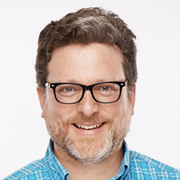
Ryan Redmond

Ryan Redmond
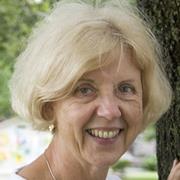
Linda Beardsley

Linda Beardsley
Research/Areas of Interest: Linda's research interests include developing effective partnerships between higher education and public schools, training teachers to teach in urban settings, and integrating technology into classroom teaching. Her articles and book reviews have been published in Childhood Education, International Journal of Qualitative Studies in Education, The Newslink, Helping Young Children Learn, and Massachusetts Department of Education publications.
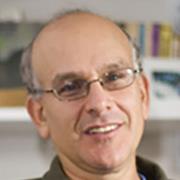
Steven Cohen

Steven Cohen
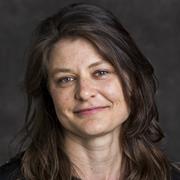
Julia Svoboda

Julia Svoboda

Brian Gravel

Brian Gravel
Research/Areas of Interest: Brian's research focuses on students' representational practices in science and engineering studied using design-based research on learning technologies and socio-technical learning environments. This work builds from the development of SAM Animation, which is stop-motion animation software developed at the Center for Engineering Education and Outreach. Brian co-developed SiMSAM: a multi-representational toolkit to support creative computational modeling activities for middle grades learners. Curious about design, play, and making, his work involves partnerships with researchers and educators to explore dimensions of STEM learning at the intersections of people, materials, representations, and cultures. One such example is starting Nedlam's Workshop in 2014, a makerspace in an urban high school that emphasizes multidisciplinary inquiry. Through this work, he developed both empirical and theoretical contributions focused on heterogeneous design, STEM literacies in making, and analyses of how communities of makers organize to support each other's practices. Collectively, his research complicates and expands the field's understandings of how inquiry unfolds in making contexts, and how makerspaces can be a site for equitable and dignified participation in STEM. Brian's newer work involves teachers engaging in playful computational making to study how they (re)negotiate relationships to inquiry, disciplines, computational tools, and heterogeneous ways of knowing. This includes the exploration of geographies of care and responsibility that support STEM learning environments that center wellbeing. His scholarship examines the many facets of making and making spaces in schools, both in the United States and abroad. Brian's collaborative research has been funded by the National Science Foundation, the LEGO Foundation, and the Spencer Foundation. Selected Publications Gravel, B. E., & Puckett, C. (2023). What shapes implementation of a school-based makerspace? Teachers as multilevel actors in STEM reforms. International Journal of STEM Education. https://doi.org/10.1186/s40594-023-00395-x Gravel, B. E., & Svihla, V. (2021). Fostering heterogeneous engineering through whole-class design work. Journal of the Learning Sciences, 30(2), 279–329. https://doi.org/10.1080/10508406.2020.1843465 Gravel, B. E., Tucker-Raymond, E., Wagh, A., Klimczak, S., & Wilson, N. (2021). More than mechanisms: Shifting ideologies for asset-based learning in engineering education. Journal of Pre-College Engineering Education Research 11(1), 276–297. https://doi.org/10.7771/2157-9288.1286 Tucker-Raymond, E., & Gravel, B. E. (2019). STEM literacies in makerspaces: Implications for learning, teaching, and research. Routledge.
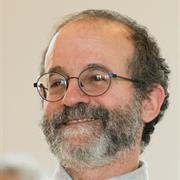
David Hammer

David Hammer
Research/Areas of Interest: Research on learning and instruction. My research is on learning and teaching in STEM fields (mostly physics) across ages from young children through adults. Much of my focus has been on intuitive "epistemologies," how instructors interpret and respond to student thinking, and resource-based models of knowledge and reasoning.
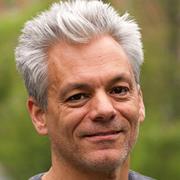
Andrew Izsak

Andrew Izsak
Research/Areas of Interest: The psychology of mathematical thinking, teachers' and students' understanding and use of inscriptions, multiplicative reasoning, applications of psychometric modeling for assessment and research in mathematics education.
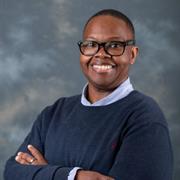
Shameka Powell

Shameka Powell
Research/Areas of Interest: Educational Equity, Teacher Education, Critical Race Theory, Social Context of Schooling, Urban Schooling, Multicultural Education
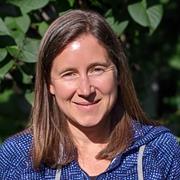
Erin Seaton

Erin Seaton
Research/Areas of Interest: Climate change and schooling, school-based mental health, human development, teaching and learning, adolescence, gender, equity in education, special education, qualitative research methods, child and adolescent literature and literacy, writing
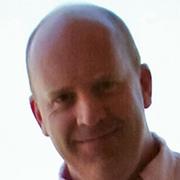
Dean Simpson

Dean Simpson
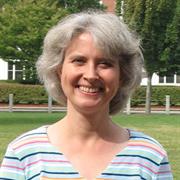
Saskia Stoessel-Deschner

Saskia Stoessel-Deschner
Research/Areas of Interest: German language and culture teaching as a vehicle to intercultural citizenship, second language acquisition, and teacher language education.
